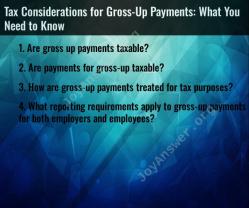What are the 30 day credit terms?
"30-day credit terms" refers to a common payment arrangement in business transactions where the seller extends credit to the buyer, allowing the buyer to make payment for goods or services within a specified period of 30 days from the date of the invoice. This arrangement is also known as "net 30 terms" or "30-day net terms."
Here's what you need to know about 30-day credit terms:
Payment Period: With 30-day credit terms, the buyer has 30 days from the date of receiving the invoice to make payment to the seller. The period starts from the invoice date, not the date when the buyer receives the goods or services.
Common in B2B Transactions: Net 30 terms are often used in business-to-business (B2B) transactions, especially when one business supplies goods or services to another. It provides flexibility for the buyer to manage their cash flow while allowing the seller to offer credit as a part of their sales strategy.
Credit Check: Sellers may conduct a credit check on the buyer before extending 30-day credit terms to ensure the buyer's ability to pay within the specified period.
Discounts and Penalties: In some cases, sellers may offer discounts for early payment. For example, they might offer a 2% discount if the buyer pays within 10 days instead of the standard 30 days. Conversely, late payments may result in penalties or interest charges.
Terms Negotiation: The specific credit terms, including the length of the credit period, discounts, and any penalties, are often subject to negotiation between the buyer and the seller. These terms are typically outlined in the purchase agreement or contract.
Impact on Cash Flow: 30-day credit terms can impact the cash flow of both the buyer and the seller. For the seller, it means a delay in receiving payment for goods or services rendered. For the buyer, it provides a window of time to generate revenue or funds to cover the payment.
Credit Application: In some cases, buyers may need to fill out a credit application with the seller before being granted 30-day credit terms. This application may require financial information and references.
Payment Methods: The payment methods accepted under 30-day credit terms can vary but commonly include checks, electronic funds transfers (EFT), or online payment portals.
Record Keeping: Both parties should maintain accurate records of invoices, payments, and any communication related to the credit terms to ensure transparency and resolve any disputes.
Legal Implications: Failure to adhere to the agreed-upon credit terms can have legal consequences. Sellers may take actions such as sending reminders, assessing late fees, or pursuing legal remedies for non-payment.
It's important for businesses to clearly define and communicate credit terms and payment expectations to avoid misunderstandings and disputes. Additionally, buyers and sellers should be aware of their rights and responsibilities under these terms, and any deviations should be documented in writing to prevent misunderstandings.













